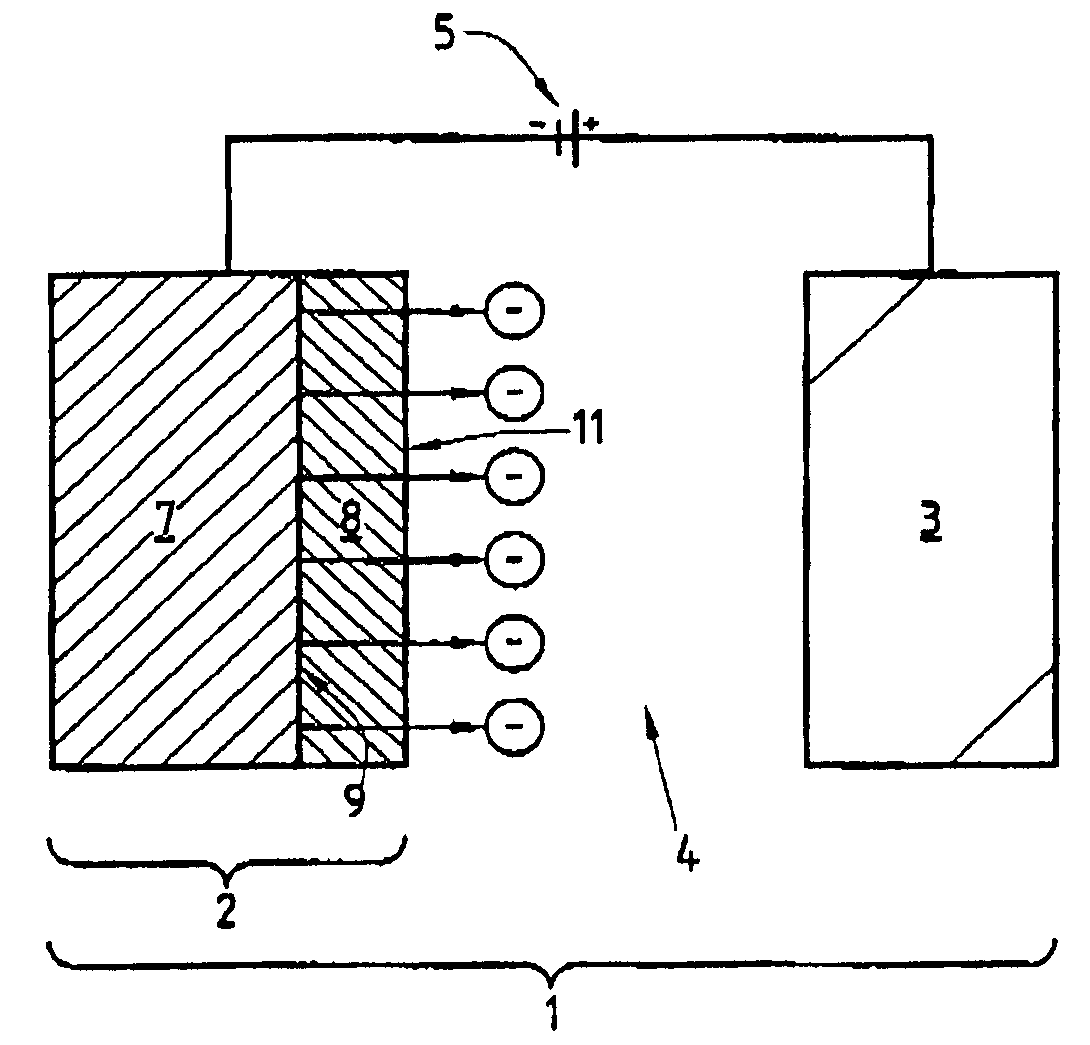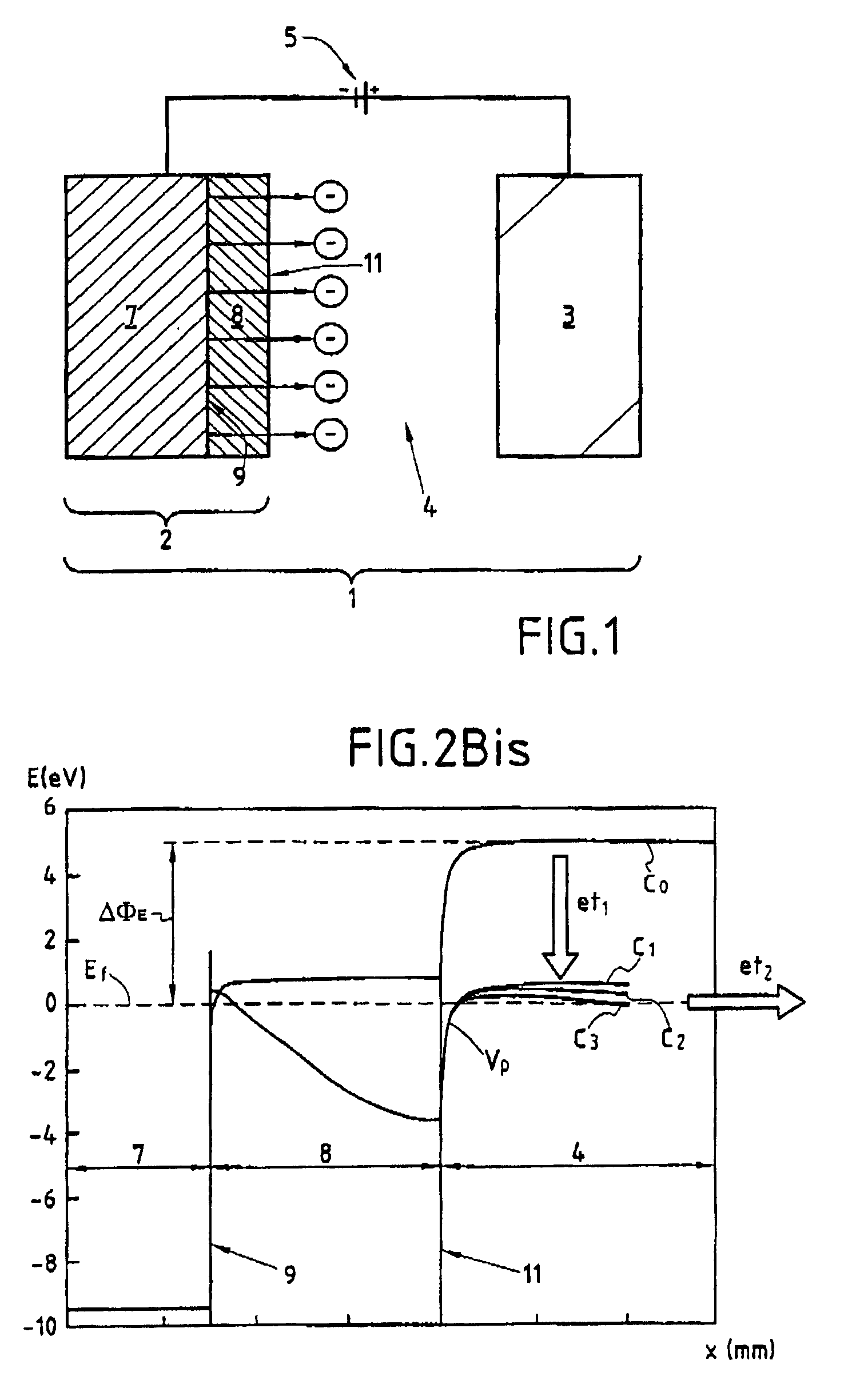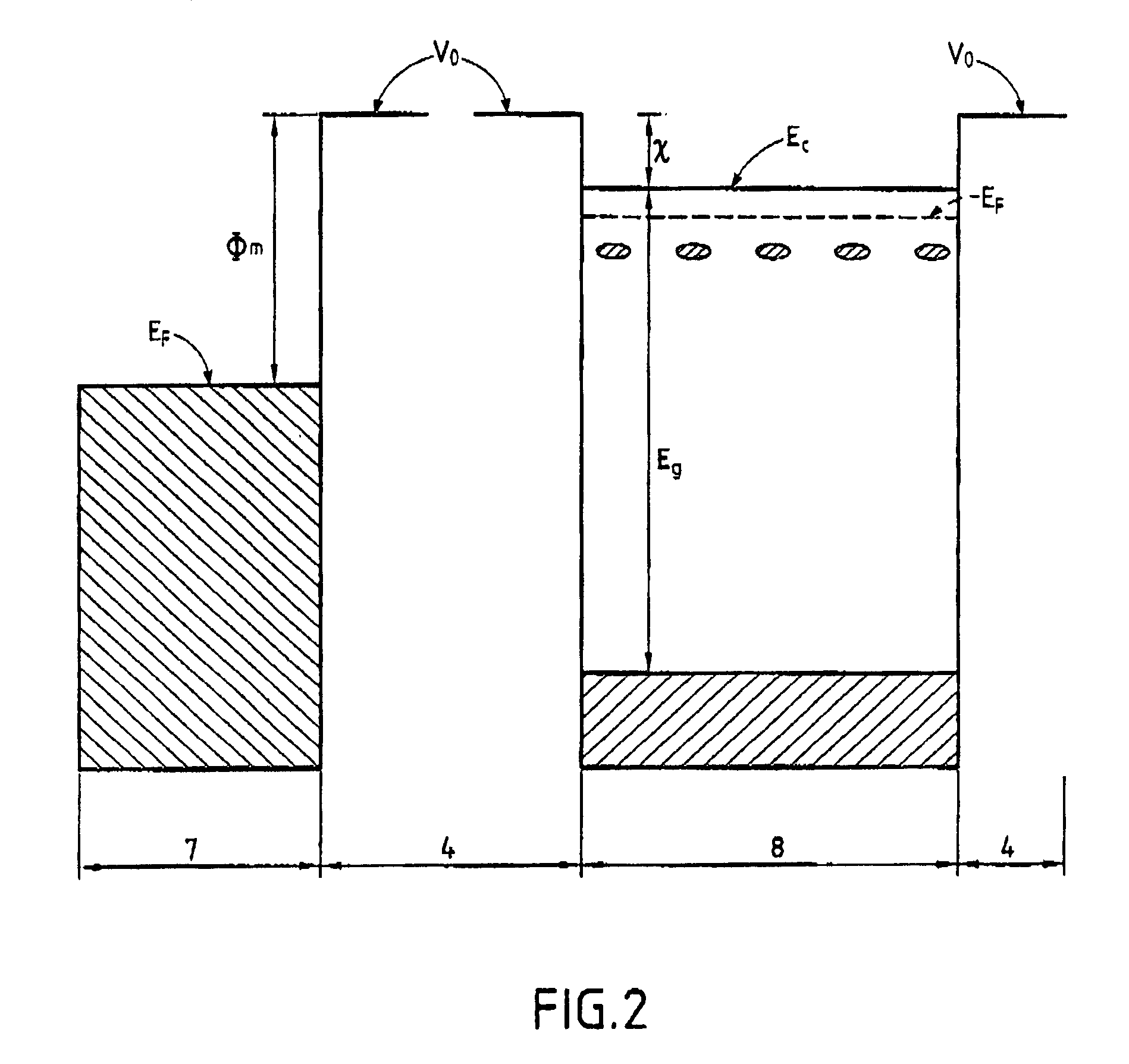Method and device for extraction of electrons in a vacuum and emission cathodes for said device
a vacuum extraction and electron technology, applied in the direction of electron-emitting electrodes/cathodes, discharge tubes cold cathodes, discharge tubes luminescnet screens, etc., can solve the problems of consuming relatively large amounts of energy, dissipating heat, and thermionic emission, and the thermionic technique of emitting electrons does not enable localized electron emission sites to be obtained
- Summary
- Abstract
- Description
- Claims
- Application Information
AI Technical Summary
Problems solved by technology
Method used
Image
Examples
Embodiment Construction
[0029]As can be seen in FIG. 1, the subject matter of the invention relates to a device 1 enabling electrons to be extracted in a vacuum, the device comprising an emission cathode 2 spaced apart from at least one anode 3 which in the example shown constitutes an anode for receiving electrons emitted by the cathode 2. The cathode 2 and the anode 3 define between them a volume 4 in which there is a vacuum (10−4 Torr to 10−8 Torr) or an ultrahigh vacuum (10−8 Torr to 10−12 Torr). The extraction device 1 also comprises a bias source 5 enabling the cathode 2 to be placed at a given potential relative to the anode 3. Practical implementation of the extraction device 1 is not described in greater detail below insofar as it is well known in the state of the art.
[0030]In accordance with the invention, the extraction device 1 comprises an emission cathode 2 having a first portion 7 forming an electron reservoir and constituted by at least one metal layer. The emission cathode 2 also has a sec...
PUM
 Login to View More
Login to View More Abstract
Description
Claims
Application Information
 Login to View More
Login to View More - R&D
- Intellectual Property
- Life Sciences
- Materials
- Tech Scout
- Unparalleled Data Quality
- Higher Quality Content
- 60% Fewer Hallucinations
Browse by: Latest US Patents, China's latest patents, Technical Efficacy Thesaurus, Application Domain, Technology Topic, Popular Technical Reports.
© 2025 PatSnap. All rights reserved.Legal|Privacy policy|Modern Slavery Act Transparency Statement|Sitemap|About US| Contact US: help@patsnap.com



